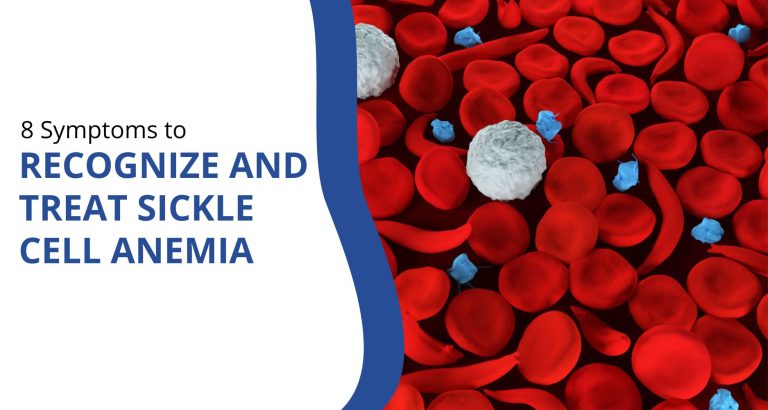How to Live a Healthy Lifestyle: A Comprehensive Guide to Best Habits

Your daily decisions have a long-lasting effect on your overall fitness and state of health. It is now even more crucial to take action to enhance your general health in a society where chronic illnesses like obesity and heart disease are on the rise.
Well-being is continuous since the science behind good living is always evolving. You could discover that certain routines and healthy lifestyle habits suit you well at one point in your life, but later on, they might not. It’s important to always be aware of the decisions most beneficial to you and adjust as necessary.
To answer your question on How to live a healthy lifestyle? This article will focus on a few good habits that you may (and should) adopt into your everyday routine.
Importance of Healthy Lifestyle Habits
Before we delve into the deep insights on answers to questions such as How to live a healthy lifestyle? Let’s know about its importance in detail! Healthy lifestyle practices are essential for the entire quality of life, not just physical health.
These behaviors significantly impact extending life, increasing mental health, and elevating emotional well-being. A person’s chance of developing chronic illnesses like cancer, diabetes, and heart disease may be greatly decreased by incorporating healthy lifestyle habits like a healthy diet, frequent exercise, and enough sleep.
Increasing Lifespan
The potential to lengthen life expectancy is among the most persuasive advantages of leading a healthy lifestyle. Numerous studies have shown that healthy lifestyle choices, including eating a balanced diet, getting regular exercise, and abstaining from dangerous habits like smoking, may extend one’s life.
These habits support general organ health, help people maintain a healthy weight, and lower their chance of developing chronic illnesses.
Enhancing Emotional Well-Being
Good living practices have a significant effect on mental health as well. For example, regular exercise produces endorphins, which elevate mood and lessen anxiety and melancholy.
Hormonal balance is maintained by adequate eating and sleep, all of which have a direct impact on mental health. Additionally, practices like meditation and mindfulness may significantly improve stress resilience and cognitive performance.
Boosting Emotional Health
Physical health and emotional well-being are closely related. Happiness and life satisfaction may be increased by taking part in social events, hobbies, and self-care routines. These pursuits provide a feeling of accomplishment, purpose, and belonging—all crucial elements of mental well-being.
A healthy lifestyle also promotes confidence and a favorable view of oneself, which further improves emotional well-being.
Healthy Lifestyle Tips to Consider
Are you also wondering how to live a healthy lifestyle or start one? No worries, mentioned below are some common healthy lifestyle habits you need to follow.
Healthy Diet
The cornerstone of a healthy lifestyle is undoubtedly a well-balanced diet. A healthy diet can significantly reduce the risk of various health issues, including heart disease, obesity, and diabetes. To embrace a heart-healthy lifestyle, start by making these dietary changes:
- Incorporate Whole Fruits and Vegetables: Include a rainbow of fruits and vegetables in your diet. Think apples, oranges, berries, sweet potatoes, spinach, and peppers. These provide essential vitamins and minerals.
- Choose Whole Grains: Opt for whole grain options when consuming foods like pasta, cereal, and bread. Whole grains offer more fiber and nutrients.
- Include More Protein Sources: Include lean meats, chicken, tofu, eggs, seafood, and beans in your meals. These protein sources help maintain muscle mass and overall health.
- Embrace Healthy Fats: Use oils like vegetable oil, olive oil, and those found in avocados, seafood, and nuts to enhance flavor and promote heart health.
- Watch Your Portions: Pay attention to portion sizes and practice mindful eating to prevent overindulging. Avoid distractions while eating, take smaller bites, and chew thoroughly.
Regular Exercise
Physical activity is another essential component of a healthy lifestyle. Engaging in regular exercise not only helps maintain healthy body weight but also improves cognitive function and mental health. Here’s how to incorporate regular exercise into your daily routine:
- Find Enjoyable Activities: Choose physical activities that you genuinely enjoy. Whether it’s brisk walking, biking, dancing, or swimming, pick activities that keep you motivated.
- Meet Weekly Recommendations: Aim for at least 150 minutes of moderate-intensity aerobic activity or 75 minutes of vigorous-intensity aerobic activity each week. This can include exercises like jogging, swimming, or even dancing.
- Strengthen Muscles: Don’t forget to engage in muscle-strengthening activities at least two days a week. Working major muscle groups ensures overall fitness.
- Get a Workout Buddy: Finding a workout partner can make exercise more enjoyable and help you stay motivated.
Prioritize Mental Health
A healthy lifestyle goes beyond the physical; it includes mental well-being too. Prioritizing your mental health is crucial for overall balance and happiness. Here are some tips to maintain a healthy mind:
- Establish Goals: Set smart goals for different aspects of your life, such as physical fitness, nutrition, or mental health. Having specific goals will keep you motivated.
- Seek Support: Don’t hesitate to involve friends, family members, or co-workers in your health goals. Having a support system can make the journey more enjoyable.
- Embrace Mindful Eating: Practice mindful eating by focusing solely on your meal without distractions. This helps you make better food choices and prevents overeating.
- Stay Hydrated: Drink enough water daily to keep your body properly hydrated. Proper hydration supports digestion and overall health.
Avoid Harmful Habits
To truly embrace a healthy life, it’s crucial to eliminate harmful habits. Two major culprits are smoking and excessive alcohol consumption:
- Say No to Smoking: There’s no healthy amount of smoking. If you’re a smoker, take steps to quit immediately to improve your health dramatically.
- Moderate Alcohol Intake: If you drink alcohol, do so in moderation. For women, this means between 5 and 15 grams per day and between 5 and 30 grams per day for men. Excessive alcohol consumption can harm your health.
According to 2017 research that used data from the Health and Retirement Study, adults 50 and older who had a healthy weight, never smoked, and consumed alcohol in moderation lived an average of seven years longer. [1]
Stay Informed About Supplements
While a balanced diet should provide most of your essential nutrients, sometimes supplements are necessary. Consult your doctor to determine if you need supplements and which ones are right for you. Common supplements include Vitamin E, Colostrum Powder, calcium, vitamin D, and B12, each catering to specific health needs.
- Tocotrienols: Tocotrienols, the purest form of Vitamin E, have become one of the most sought-after supplements in recent years. They help protect cells from oxidative damage, promoting cardiovascular health and reducing the risk of chronic diseases. [2]
- Bovine Colostrum Powder: Bovine colostrum powder is a rich source of essential nutrients and bioactive compounds. Look out for the ones that have been extracted within 6 hours of birthing to get the best quality Colostrum powder, among other factors such as healthy, grass-fed cows.
- Vitamin B complex: These vitamins are crucial for metabolism, maintaining healthy skin, hair, and eyes, and supporting the nervous system, ultimately promoting overall vitality and well-being.
- Vitamin D: An increase in vitamin D levels contributes to overall health by reducing the risk of bone-related conditions, supporting immune function, and enhancing mental well-being.
- Calcium: Calcium supplements play a pivotal role in overall health by promoting strong bones and teeth. They also aid in muscle function, blood clotting, and nerve transmission, contributing to better physical well-being and reducing the risk of osteoporosis.
- Fish oil: They can improve cardiovascular health by lowering blood pressure, and supporting heart function. Additionally, they provide anti-inflammatory effects, benefiting joint health and overall well-being.
Prioritize Sleep for a Healthy Life
Sleep plays a vital role in your overall health and well-being. Aim for at least 7 hours of quality sleep each night to reap its numerous benefits:
- Maintain a Sleep Schedule: Stick to a consistent sleep schedule to ensure you get enough rest each night.
- Create a Comfortable Sleep Environment: Sleep in a dark, quiet room with a comfortable temperature to promote restful sleep.
- Avoid Certain Foods Before Bed: Avoid large meals, caffeine, and alcohol before bedtime, as they can disrupt sleep patterns.
- Be Physically Active: Regular physical activity can improve the quality of your sleep.
- Disconnect from Electronics: Avoid using electronic devices before bed, as the blue light emitted can interfere with your ability to fall asleep.
Conclusion
Significant gains in well-being on all levels may result from implementing these expert-recommended healthy living practices. Even while implementing all of these behaviors at once can seem daunting, even little, simple adjustments can have a big impact.
Remember, running a marathon rather than a sprint is the path to a better lifestyle. You may establish the groundwork for an extended period of health and well-being by concentrating on five essential areas. So, we hope you may have got the right answer to questions such as How to live a healthy lifestyle.
How to Live a Healthy Lifestyle – Frequently Asked Questions (FAQs)
How to Live a Healthy Lifestyle?
The WHO advises eating a diet high in fruits and vegetables, limiting fat, sugar, and salt, and getting regular exercise to maintain a healthy lifestyle. People may determine whether they are overweight by calculating their body mass index (BMI) based on height and weight. Several publications are made available by WHO to encourage and support healthy living.
Why Is It Important to Have a Healthy Lifestyle?
Maintaining a healthy lifestyle may aid in the prevention of long-term illnesses and chronic disorders. Maintaining your health and feeling good about yourself is critical to your self-worth and self-image. Adopt a healthy lifestyle by taking care of your body as it requires.
What’s a Balanced Lifestyle?
Achieving optimum health in all spheres of your life—relationships, employment, physical fitness, overall health, and emotional contentment—is balanced living. Everyone forgets to schedule time because they are preoccupied with their jobs and families.
Can Your Daily Habits Affect Your Health?
Developing new, healthier behaviors might shield you against life-threatening conditions like diabetes and obesity. Developing new routines that include regular exercise and a balanced diet can assist you in losing weight and feeling more energized. If you maintain these adjustments over time, they can eventually become a regular part of your schedule.
What Are the Risk Factors of Health?
Health risk factors are traits, features, or situations that raise a person’s chance of contracting an illness or other health issue. Four health determinants are covered here: clinical treatment, social and economic factors, healthy lifestyle habits, and physical environment elements.
What Is a Basic Healthy Diet?
A basic healthy diet places a focus on whole grains, fruits, vegetables, and low-fat or fat-free milk and other dairy products. Includes a range of protein sources such as fish, meat, poultry, eggs, legumes (such as beans and peas), soybeans, nuts, and seeds. Has minimal cholesterol, salt, saturated and trans fats, and added sugars.
Why Are Lifestyle Diseases Bad?
Illnesses, known as lifestyle illnesses, are mostly caused by an individual’s daily routines. Habits that discourage exercise and encourage sedentary behavior may lead to a variety of health problems, including chronic non-communicable illnesses with potentially fatal outcomes.
Disclaimer: This content, including advice, provides generic information only. It is not a substitute for a qualified medical opinion. Always consult a specialist or your own doctor for more information. Ingredient Fact does not claim responsibility for this information.
References
- Mehta, Neil, and Mikko Myrskylä. “The population health benefits of a healthy lifestyle: life expectancy increased and onset of disability delayed.” Health Affairs 36.8 (2017): 1495-1502.
- Mohamad S, Shuid AN, Mokhtar SA, Abdullah S, Soelaiman IN. Tocotrienol supplementation improves late-phase fracture healing compared to alpha-tocopherol in a rat model of postmenopausal osteoporosis: a biomechanical evaluation. Evid Based Complement Alternat Med. 2012;2012:372878. doi: 10.1155/2012/372878. Epub 2012 Jul 5.






